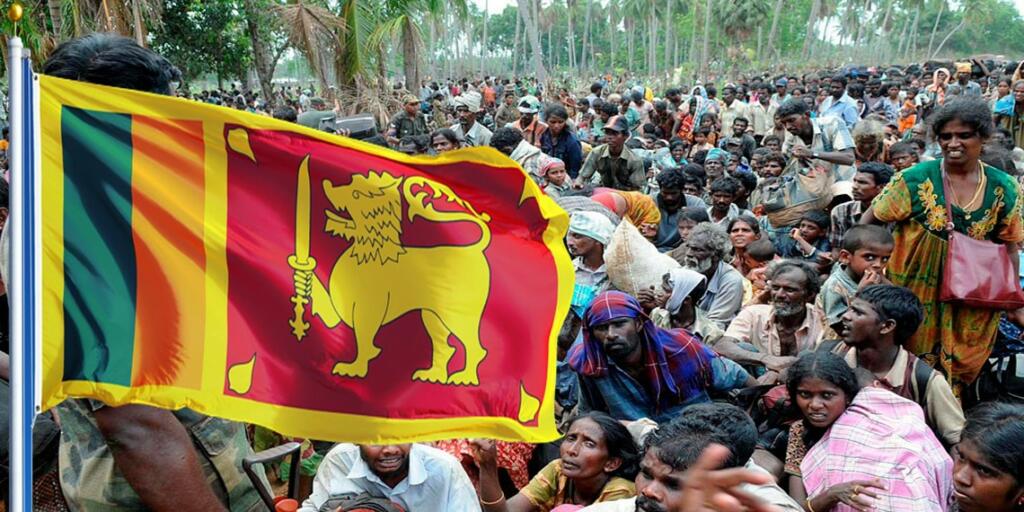- India is staring at another influx of Sri Lankan refugees in its territory
- It looks humanitarian and feels good, but providing refugees easy access to our resources has economic and political consequences
- Borders are a way to ensure that the local population get as much advantage of their forefathers’ hard work, it should never be diluted
Vasudhaiv Kutumbakam is the phrase that Indians use to describe their relationship with the whole world. However, there is a reason why two countries are clearly demarcated by a fixed point called a border. That’s why it does not make much sense to welcome everyone as Kutumb. Taking them in has its economic, political and social ramifications.
Sri Lankans flocking to India
Once again Sri Lankans are looking towards India with hope. Other than their government’s demand for assistance, civilians are lining up to avail benefits from both state and the Modi government. Currently, India hosts more than 1,00,000 Sri Lanka refugees in specially designed refugee camps. These camps are mostly funded by Indian taxpayers’ money.
Moreover, 34,000 Sri Lankan citizens are living outside these camps and virtually enjoying the same rights as Indian citizens. The number is set to skyrocket as the economic crisis deepens in Sri Lanka. Riding on its civilizational principle of universal brotherhood, India will soon welcome them with open arms.
Read more: Sri Lanka should sign the Instrument of Accession
Refugees impact local population
On the face of it, providing shelters to refugees does look like a humanitarian act rooted in goodwill. However, it is also true that no matter how good your intentions are, you do not have any control over the consequences. Refugees and their prolonged stay in countries (a lot of times, they become citizens) severely impact local populations.
When refugees visit India, they receive aid from local governments. These aids include free access to electricity and water, free computers, and reserved places in higher education. Sometimes, they are preferred over locals whose ancestors spent their whole lives making this land a better place. This leads to an intense rivalry between locals and refugees as the government starts to divert the resources of those whom they’re meant to serve.
It is not that there is no mechanism to fund the aid for these refugees. It’s the responsibility of the UN to provide funds to host countries. However, donors have become increasingly reluctant to fund these refugees. In 2018, it was estimated that $25 billion would be required to provide assistance to refugees. However, total contributions by donors could make up for only 56 per cent of these. The remaining 44 per cent was spent by host countries. The situation has only marginally improved in recent years in the wake of covid pandemic.
Read more: The Era of Vasudhaiv Kutumbakam is over. It’s time for “Veer Bhogya Vasundhara”
Refugees end up snatching local jobs
If the fight for the natural resources (like food, water etc.) is not enough, the refugees also slowly start to take up nationally owned resources like jobs for locals. When refugees come to a country, they have only survival instincts left. They somehow need a mechanism so that they can get as much local currency to buy stuff for their families.
In this quest, they readily surrender their earlier standard of dignity (which they practised in their country of birth). So, even if a person was a managing director in his country and considered daily wage labourers as menial, he would take up the same work when he is a refugee in another country which minimizes the jobs available for the native population of the host country.
Additionally, these refugees are willing to work extra shifts as well for building their base. Industry welcomes cheap labour with open hands as locals do not allow their exploitative labour policies to ruin their lives. So, the industry gets cheap labour, refugees get a constant source of income and locals are denied their deserved opportunity in their own country. This is the reason why big companies are often found supporting migration. It’s not because they care for them, it’s because they get cheap labour. Therefore the concept of a fair wage doesn’t stand a chance in front of the cheap labour supply.
Read more: ‘Mughals were refugees,’ Naseeruddin Shah’s latest brain fart
Multiculturalism is a myth
The refugees also introduce an unknown culture which ends up jeopardizing the locals’. Apparently, over a period of time, they start holding their own rituals, which comes in the way of already existing communities. Over some time, they start garnering support from local media and politics as they belong to minority groups. This later transmutes into more distrust among them and citizens. Now, the liberal view is that diversity is our strength, but evidence suggests otherwise.
Robert Putnam, a renowned political scientist, had done a thorough study on diversity. He found that the more diverse a community is, the more it is likely that different communities will trust each other. Though that was true for the short term, in the long run, we all know that its majority which keeps making way for minority appeasement politics. It is evident in India as well where Hindus are constantly foregoing their rights so that Muslims and some other minorities who are originally migrants can live peacefully.
Borders are a method to secure a country’s population. When two countries are sealed inside different borders, it means that one country’s population do not agree with the other’s, but both can enjoy their respective freedom in their territories. If that is allowed to be blown away, then consequences are always catastrophic, no matter what your pro-migration politician says.
